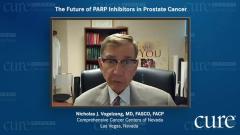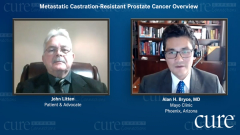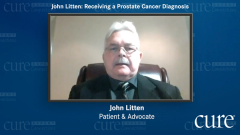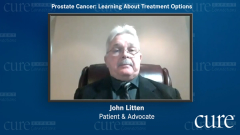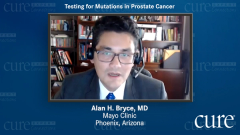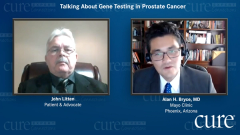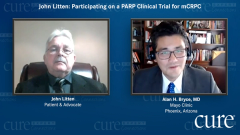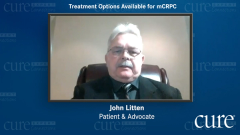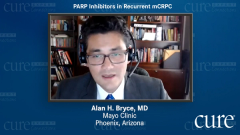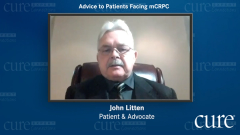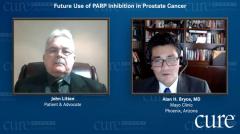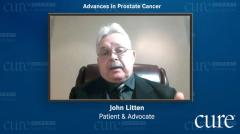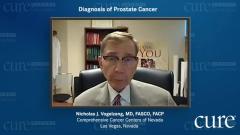
Metastatic Castration-Resistant Prostate Cancer Overview
Episodes in this series

Alan H. Bryce, M.D.: Hello, my name is Dr. Alan Bryce. I’m an oncologist at the Mayo Clinic [in Phoenix], with a practice specializing in prostate cancer. I’m here today on CURE Connections® with my patient and friend, Mr. John Litten. John has been a patient of mine for several years. We’ve been treating his prostate cancer, and he has become a passionate patient advocate and educator and has volunteered to be with us today to talk to you about prostate cancer.
John Litten:My name is John Litten, and I’ve been a patient of Dr. Bryce’s through the Mayo institute for eight years. I don’t know how often human trial research is available to the viewers who have the same type of prostate cancer. It’s been an incredible journey so far. Fortunately, because of my connection here with Dr. Bryce, he has led me down the path of a variety of treatments up to the one I’m on right now. I guess we would start from when I first came in and got started with you.
Alan H. Bryce, M.D.: Let’s begin with a general overview of prostate cancer. After we introduce that, we’ll discuss the general terminology and classification of prostate cancer. We’re going to talk with Mr. Litten about his journey with prostate cancer, how the diagnosis started, and his insights on what it’s like to be a patient starting down this path.
In terms of an overview, prostate cancer remains the second-most common cause of cancer-related death in U.S. men. It’s the most common nonskin cancer diagnosed in U.S. men and affects about a quarter of a million men a year. About 85% of those men are going to do very well, but roughly one in eight will develop life-threatening disease, and about 30,000 men a year will die of prostate cancer in this country. Oftentimes it’s thought to be a disease that moves slowly, and men will die with it, not from it. In fact, it’s still a major public health problem and something that requires a lot of work for us to solve it to make sure that we’ve cured this and reduce the death rate.
In terms of aggressive prostate cancer, we consider prostate cancer to be advanced. If it spreads beyond the prostate and reaches the lymph nodes or other organs in the body, at that point we call it metastatic prostate cancer. That’s the form of prostate cancer that can be life-threatening. In the early stages, we’re going to treat that kind of advanced prostate cancer first with hormonal manipulation. The reason we do that is because prostate cancer cells in the early stage are much like the normal healthy prostate cells.
The prostate, of course, is a male organ. It develops in the embryo when the fetus gets exposed to androgens, such as testosterone and related hormones. Even throughout development in adult life, the prostate continues to be stimulated by testosterone. One of the most effective ways to treat prostate cancer in the beginning is to take that testosterone away. That’s what we call actual chemical castration. That usually works well in the beginning until the cancer starts to become resistant to that and grows despite low testosterone, and that’s what we call castration-resistant disease.
Prostate cancer can cause a variety of symptoms. In the early stage it’s often urinary obstruction because the prostate sits right under the bladder. The urethra passes through the middle of the prostate, and if a cancer is growing in that space, it can cause pure mechanical obstruction of the urine flow. But if the cancer starts to spread, it can cause a variety of symptoms. If the prostate cancer becomes bulky, then it’s an organism—it’s a parasite if you will—competing for the man’s energy, so it can cause weight loss or fatigue. If it starts to show up in organs like the bones or the liver or the lungs or places like that, it can start to cause pain or obstruction or other symptoms based on its size or location.
One of the most important aspects of prostate cancer management and decreasing the burden of this disease in American society is screening. We prefer to catch cancers early when they’re most curable. This remains a controversial topic in U.S. medicine. How do you appropriately screen for prostate cancer? It’s a topic that makes a lot of men uncomfortable.
Transcript Edited for Clarity






